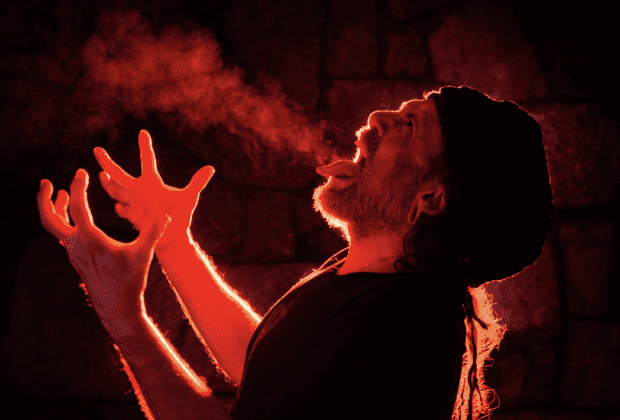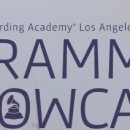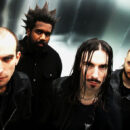(Photo by Stephanie Cabral)
Even over the phone, it's impossible not to sense the enormous presence of Six Feet Under vocalist Chris Barnes. To really feel it. The man who, if social media is to be believed, is adored and despised in equal measure has an air about him that makes it clear from the off that he doesn’t suffer fools gladly. He doesn’t mind shutting down a question if he’s not feeling it, doesn’t have any issue with interjecting to clarify. Barnes is as headstrong and opinionated as one might guess.
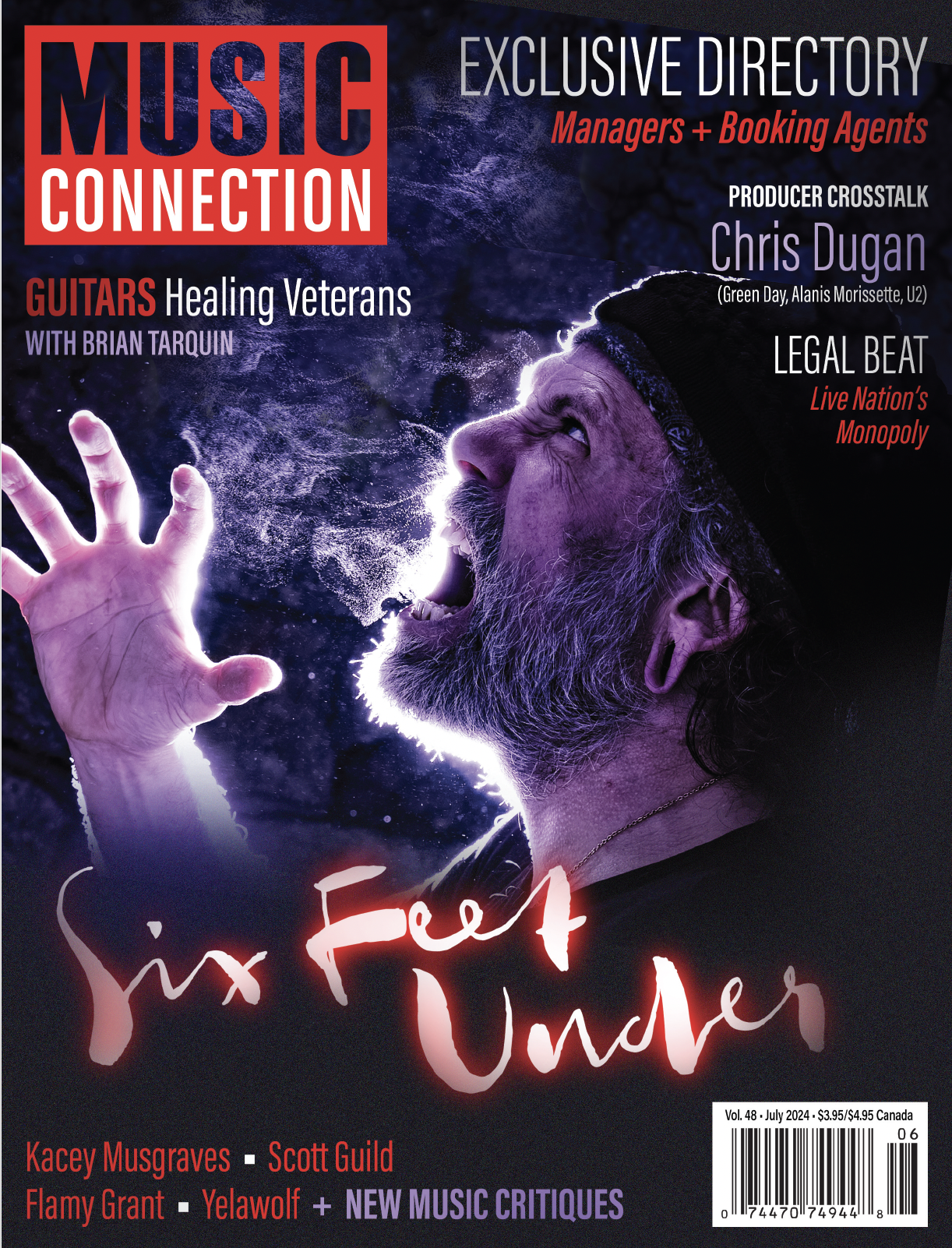
Stories about publicists refusing to work with Cannibal Corpse, due to some of the more grotesque lyrics and song titles on the Tomb of the Mutilated album, were flying around back in the ‘90s, which isn’t massively surprising.
You needed a strong constitution just to look at the uncensored sleeve art, which generally depicted undead types indulging in all manner of sordid shenanigans. But the lyrics upped the ante. We can’t really reprint them here, but suffice to say that the song title “Hammer Smashed Face” saw Cannibal Corpse at its most restrained.
Ultimately though, it was just an aural horror movie. During this writer’s school years, Tomb of the Mutilated CDs were passed around under the desks, alongside VHS copies of Texas Chainsaw Massacre. It was an act of teenage rebelion, a rite of passage.
Barnes formed Six Feet Under in ‘93 initially as a side project, but when he left Cannibal Corpse in ‘95 citing those oh-so-familiar creative differences, SFU switched to his main concern. This year, SFU released its 14th studio album, Killing for Revenge. Three decades into this chapter, Barnes remains a polarizing figure, capable of confounding and delighting.
It’s always been that way, and to tell his story properly we need to go back to the beginning. Barnes’ introduction to the world of metal came courtesy of the makeup-sporting hard rock stomp of KISS.
“I loved KISS,” he says. “The first album I ever got was KISS Alive, and then my first tour was seeing KISS on the Dynasty tour. So that started it all, and I graduated to Van Halen and Black Sabbath. I liked other stuff like Jimi Hendrix and The Doors, stuff like that. My family wasn’t a very musical type of family. My dad’s second wife, she was more into bands and music at the time so she took me to see KISS for my first concert—that was kind of cool.”
From there, Barnes was hooked. He’d seek out obscure European metal bands, while also enjoying the glammy likes of Sunset Strip strutters Ratt. When he discovered the L.A.-based Metal Blade Records label, he felt like he had found some kindred souls.
“If I saw the name Brian Slagel [Metal Blade founder] on it, or Bill Metoyer [MB producer/engineer], I would be like, ‘OK, that one wins.’ I was a huge fan of Metal Blade and what Brian was putting out, even back then.”
Barnes and Cannibal Corpse would eventually sign with Metal Blade in ‘89, completing that particular circle. Barnes, Corpse drummer Paul Mazurkiewicz and former guitarist Bob Rusay were all friends first–neighborhood metalheads, going to concerts together. They’d listen to Iron Maiden in basements, playing air guitar to those songs. They actually entered a local radio station’s air band competition. As their friendship blossomed, they started exploring heavier music, by the likes of Hellhammer and Celtic Frost.
The friends would, of course, start picking up real instruments, developing their distinctive style, leading Barnes to discover his own unique vocals. Guttural and brutal, even by death metal standards, Barnes really did create something devastatingly fresh (if “fresh”is the right word).
“You know, I think it’s just a trial and error thing as far as finding your own voice,” he says. “I gravitated towards vocalists like Rob Halford [Judas Priest] and Geoff Tate [Queensryche]. The real heavy, deep vocals didn’t really exist. I think during the writing of Eaten Back to Life [CC’s debut], I was working on more of a Slayer type vocal sound."
"I think the last song we wrote on that album was ‘Buried in the Backyard,’ and I remember something clicked. The vocal presentation was a little bit different on that song. Like, if I do this, it matches the distortion and crunch of the guitar tone. So that’s really where it started, and it kind of just progressed.”
By the sophomore album, Butchered at Birth, Barnes feels that the Cannibal Corpse sound was nailed down. It was after that album that he says fractures started to develop in the band dynamic, despite the fact that, in this writer’s opinion, the following Tomb of the Mutilated album is their best.
“I can’t really deny that album,” Barnes says. “There were some things that happened during the recording that I wasn’t happy with. There became a separation within the band and a lot of that was caused by [producer] Scott Burns and stuff. It would have been a lot better for the band internally to stay in Buffalo. I’m not unhappy with things. But certain people just changed the way this whole thing was working. It just kind of ruined it. I was unhappy with being in the band. But that’s all right. It is what it is. We wrote some great stuff. And those albums are really good anchors in both of our careers.”
Next year, it will be 30 full years since Barnes left Cannibal Corpse. 1994’s The Bleeding, the band’s fourth album, was Barnes’ last with them. For their part, CC hired George “Corpsegrinder” Fisher and they still exist today. Barnes’ Twitter/X biography might read, “In 1995 Cannibal Corpse changed their name to Six Feet Under,” but he can certainly feel proud of his time with that seminal band. There’s just always going to be a little niggle.
“Those albums are bulletproof to me,” he says. “But you know, it’s different for the guy that was involved with writing for it. You have different memories of what it was like. You see the final product the fans do, but there’s bits and pieces that are all wound up in each of those things that are part of my personal life and history. So they mark certain points in time for me as a person. I think that’s difficult for fans to understand, when I talk about stuff like this. But it’s part of my life.”
It was while on tour with Obituary, between chatting with future Six Feet Under man Allen West, that Barnes came up with the lyrics for Haunted, SFU's debut, immediately after writing the lyrics for The Bleeding.
“I got them done at the same time,” Barnes says. “I just was like, ‘Man, this is some good material.’ And when things went sour in the studio with Cannibal, I just went on tour with Six Feet Under, our first tour. The Cannibal guys wanted me to cancel it, stay in the studio. I was like, ‘No dude.’ We worked hard on getting this thing together. So I left and it was the best decision I ever made."
"It really was, and the tour was phenomenal. I couldn’t believe it, how this it was effortless. I got back from the tour and I got a phone call from Alex [Webster, CC bassist]. ‘You know, we’re gonna go in a different direction with the vocals.’ I basically giggled. I was like ‘Yeah, man, no problem.’ It was a relief.”
Six Feet Under’s Haunted came out in 1995, the same year that Barnes left Cannibal Corpse. This year’s Killing for Revenge is their 14th studio album, and Barnes says that the changes to their sound have been very deliberate.
“I’ve always tried to throw everything away and just concentrate on the music,” he says. “It’s not a natural evolution. It’s purposefully a technique that I tried to implement. The vocals on Butchered at Birth are different than The Bleeding. I got deeper for True Carnage [SFU’s fourth album]. Those songs are vocally deeper than anything I did on Cannibal Corpse. And people just don’t understand, or they don’t want to look at it like that. People just like to look at the surface value of things. Each album, I don’t really care about what I did in the past. I’m not trying to replicate things. I try to add things or do things differently live because it’s organic.”
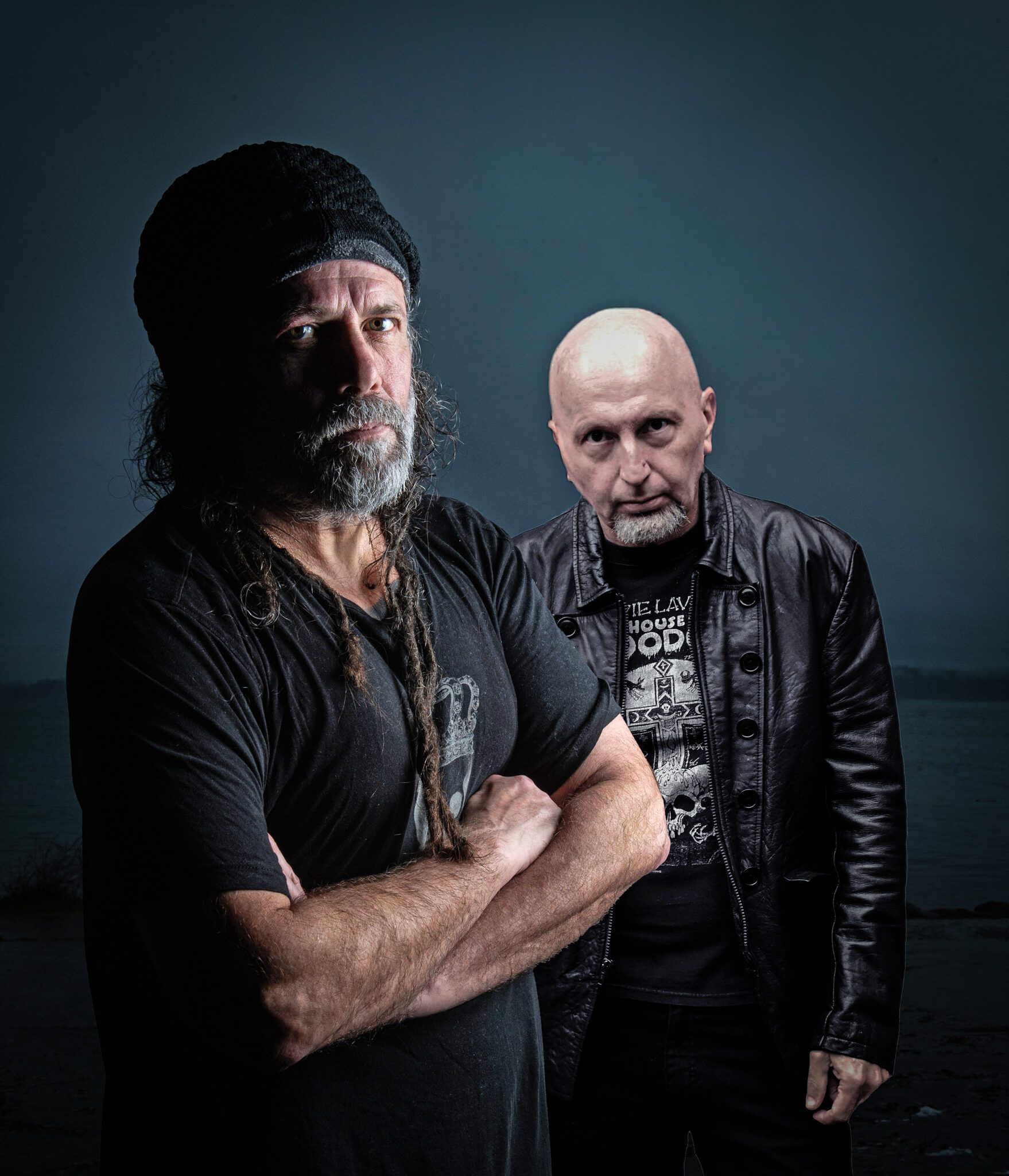
2020’s Nightmares of the Decomposed saw former Cannibal Corpse guitarist Jack Owen [also of Deicide] rejoin his old friend and colleague in Six Feet Under. Barnes and Owen have rekindled the old fire, sharing songwriting and some production duties, and breathing fresh life into the band.
“He’s a smart, smart dude,” says Barnes of his pal. “I feel like he’s easy to work with. I think we both respect where things need to go and what the new album is. It sounds like it’s supposed to sound and if it would have been done by anyone else, they would have brought out certain things in the album that shouldn’t have been brought out."
"Now, as you know, people are using ProTools like some magic wand. Those are people that have never recorded analog and just have no flippin’ clue. I like the subtlety and organic nature of music and recording. We worked well together in Cannibal Corpse. He was probably my favorite person back then in that band. I just loved him to death as a friend and a musician so I’m really comfortable giving him the reins because I just have such great respect for him as an artist.”
That organic nature is all the more impressive when considering that the various members of SFU were all in different parts of the country during the recording.
“Everyone lives in a different corner of the country or whatnot,” Barnes says. “I think Death Rituals [their eighth] was the last album that we were working in the studio together. That’s one good thing about technology nowadays. You can have your own studio and it’ll be a high-quality recording. That’s the positive side of things. "
"We all recorded it on our own, in different different parts of the country since we’re all spread out. I think the most important thing is to put everybody in a comfortable space so that they get a great performance. That’s what you want to capture. So, yeah, that’s how we did it for this. It’s really hard nowadays to afford everyone being in the studio recording like we used to back in the ‘90s. It can be done just as effectively this way.”
While Barnes is the sole remaining member, Six Feet Under is about more than he and Owen. The man is thrilled with the current lineup, and what each member brings to the table.
“Jeff [Hughell, bass] and Marco [Pitruzzella drums] have been with me for about 10 years,” Barnes says. “I’m really fortunate that I have probably the best musicians in metal. This line up’s incredible. If you look at it, we have the same amount of original members as Cannibal Corpse, and probably the better two. Jeff is just a killer bass player. Marco’s probably the best drummer out there. Jack’s the greatest songwriter I’ve ever been involved with over the over the 30-plus years I’ve been doing music professionally. And Ray [Suhy] is just a phenomenal guitarist who can play everything from jazz to death metal. So I have the greatest lineup that I’ve ever had. The lineup now is untouchable.”
The frontman says that the major theme on new album Killing for Revenge is indeed revenge. Revenge against man, or man’s revenge against nature, or both.
“‘Compulsive’ is about the struggle with a person who’s addicted to eating his own flesh,” he says. “But I mean, it could be looked at as an addiction to anything. So it’s like man against himself.”
The songs on Killing for Revenge dive headfirst into subjects that are as gleefully vile, graphic and downright grotesque as you might imagine from a Barnes/Owen project. After all, the two men were vital cogs in the Cannibal Corpse band that released such delightfully offensive death metal classics as Butchered at Birth and Tomb of the Mutilated. Highlights of this latest Six Feet Under opus include the aforementioned “Compulsive,” which tells the tale of a disturbed individual in a padded cell, eating himself alive. The lyrics are wonderfully vivid: “Display of carnage for the poor soul who finds you; To discover sick survival that binds you; Heaving lungs the only thing intact; Scattered expelled organs your final act.”
“Jack wrote 90 percent of the lyrics on this album, and that was one that he came up with the storyline to,” says Barnes. “How you want to interpret it is up to you. You can find deeper meaning or metaphors or symbolisms and stuff like that. But I would say a good interpretation is someone suffering that’s devouring himself. You could look deeper as it being about addiction and all sorts of stuff.”
The opening song on the album, “Know Nothing Ingrate,” was also the first single back in March. That release kicked off the launch.
“I kind of went back and forth on what song should be the first one to throw out into the world,” says Barnes. “Jack liked the idea of ‘Know Nothing Ingrate.’ The lyrics speak pretty directly to certain people in our society now that think they know more about life with very little real world experience. They do research through a search engine to find answers rather than living life, and then tell or criticize others that choose to experience or have experienced life, but thinks they know better than them. So I thought it was a poignant way to start.”
Many fans felt that Six Feet Under had suffered a dip in form a few years ago. If that’s true, and it is debatable, then the introduction of Owen to the ranks has shaken things up in a very positive way. This second album has solidified it all, and the band is at the top of its game again. So what gear did they use while creating this new album?
“I use the [Shure] SM7 mic a lot,” Barnes says. “Back in the Cannibal days, Scott Burns set up a Neumann mic and I fucking blew it up in the first session. I think at that time, it was like a $10,000 mic, but so they weren’t too happy about that. An SM7 has always been a great mic, but I’ve used an SM58 in the studio on a lot of the stuff that I’ve recorded for Six Feet.”
Barnes, to be specific, used a 1990’s Electro-Voice RE20 in the studio for the Killing for Revenge vocal sessions, and a 1970’s Shure Brothers PE50SP on stage. Meanwhile, Owen is endorsed by and uses Railhammer pickups, Crimson Cabinets and Ernie Ball strings. Jeff Hughell is endorsed by and uses Warwick Basses, Neural DSP, and Gallien Krueger. Marco Pitruzzella is endorsed by and uses Vic Firth and Paiste. Ray Suhy is endorsed by and uses Fortin Amplification, Eventide, Jim Dunlop Manufacturing, and Enki Cases.
With that album out, Barnes is hoping to tour the States in 2024 as the band hasn’t been on the road in this country for a decade.
“I’d like to get a tour put together,” he says. “I would love to get back out on the road. It’s been too long. Three of those years were due to the pandemic. I love being on the road. I love being in a tour bus and being in front of people on stage. You know, that’s what I was meant to do. So I have missed it so much. We’ll be preparing for the next album too.”
Regardless, Killing for Revenge has hammered home the fact that Barnes is the reigning king of death metal.
Long may he roar!
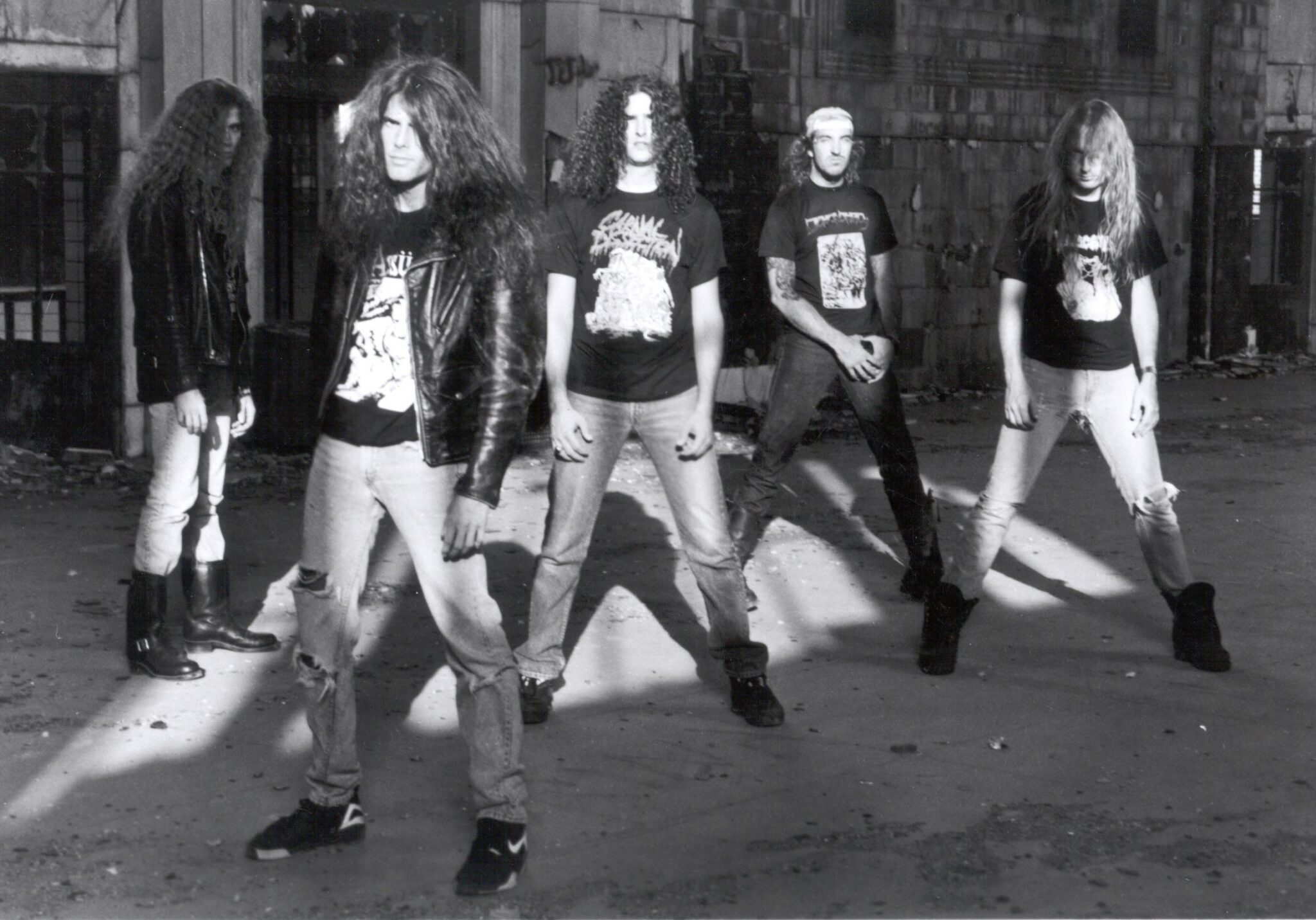
Quick Facts
Cannibal Corpse album sleeves from the Chris Barnes era have been banned and/or censored all over the world. They were also banned from performing in some countries, including Germany and Russia. It would be delightful to know what Tipper Gore, who took issue with the far less offensive Twisted Sister and W.A.S.P., made of Cannibal Corpse.
Barnes designed the original Cannibal Corpse logo, and the Six Feet Under logo.
Before CC, Barnes was in two other metal bands in Buffalo, NY: Tirant Sin and Leviathan.
Former members of Six Feet Under includes Greg Gall, Allen West (Massacre/Obituary), Rob Arnold (Chimaira), Kevin Talley (Dying Fetus/Suffocation), Ola Englund (The Haunted), and Steve Swanson, as well as Terry Butler (Obituary/Death).
Barnes is an enthusiastic campaigner for the legalization of marijuana.
As well as Cannibal Corpse and Six Feet Under, Barnes has appeared on albums by Torture Killer, IHATE, Cannabis Corpse, Gorguts, Skribbal, and Incite.

